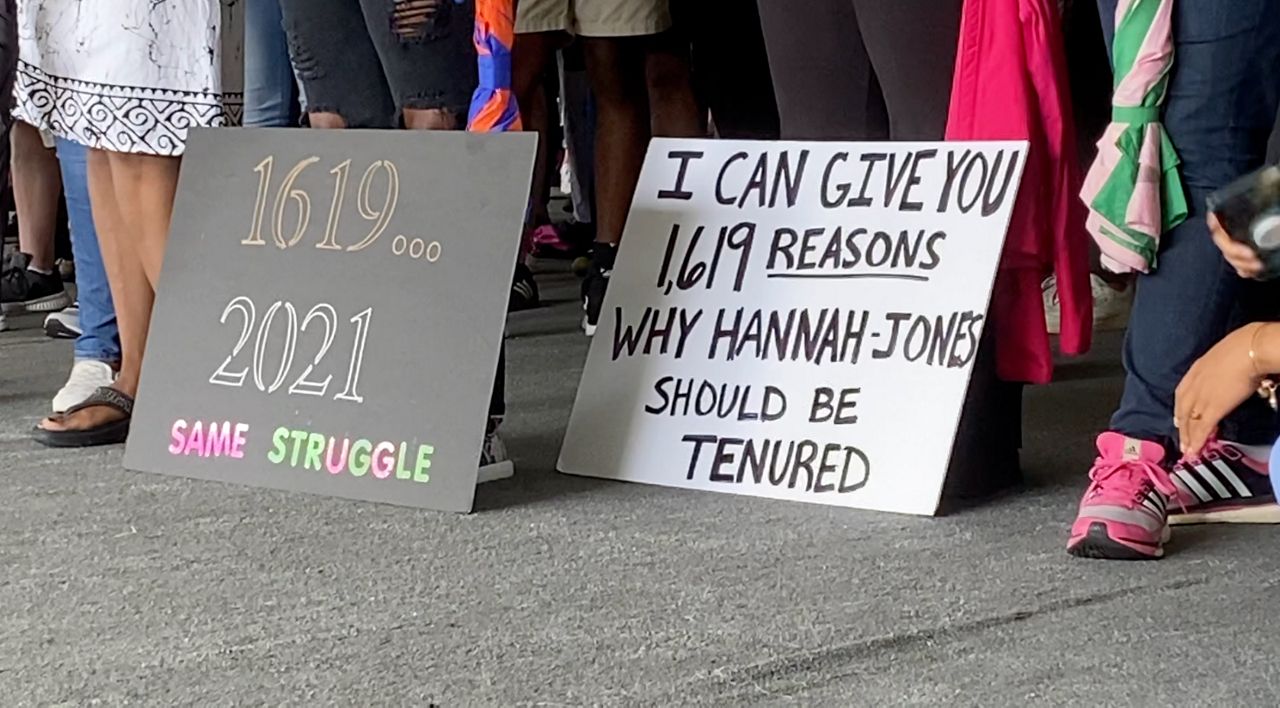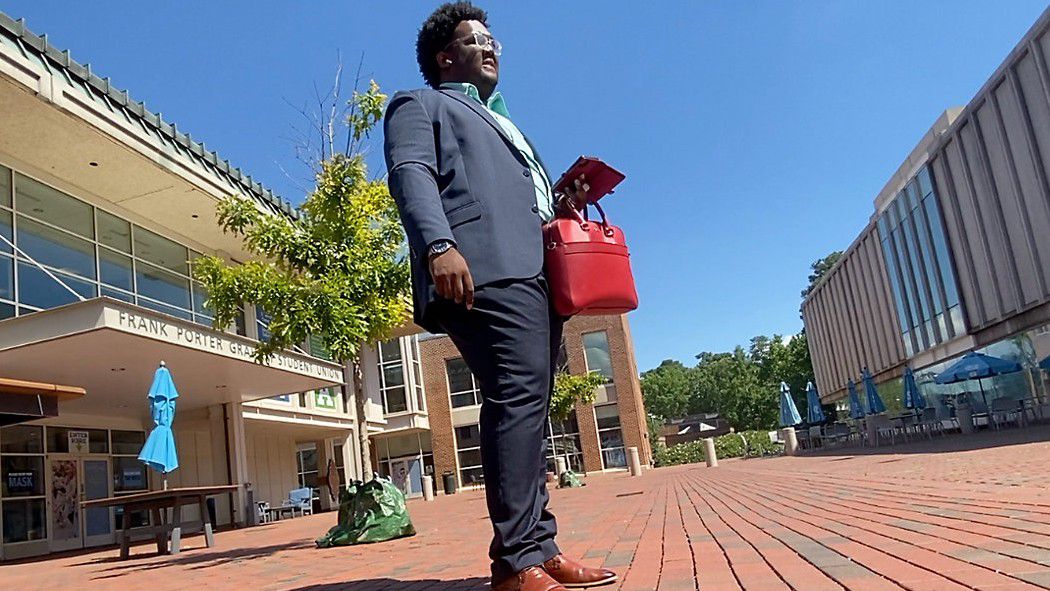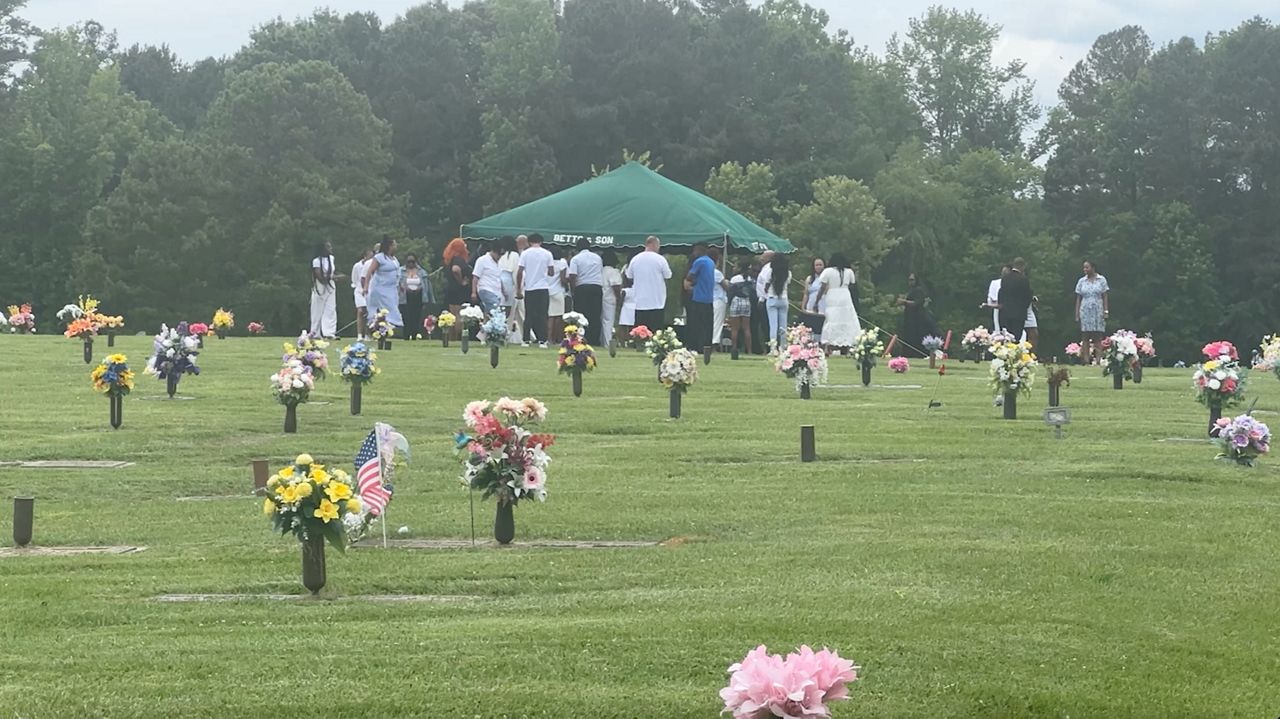CHAPEL HILL, N.C. — UNC student body president Lamar Richards never set out to represent the university’s 20,000 undergraduate students when he started at the school in 2019.
Richards became involved in the Student Senate his first two years, where he was one of few people of color in the governing body.
Lamar Richards is the first Black, openly gay UNC student body president
He has vowed to fight for students' voices
He called for a special meeting of the Board of Trustees to hold a formal vote on tenure for Hannah-Jones
“I started speaking out and becoming more active and somewhere along the line I got the name of ‘troublemaker of the Senate,’” Richards told Spectrum News 1.
The rising junior entered the presidential race during his second year at the last minute.
“I say this seriously and jokingly, but I actually had no plans to become student body president,” Richards said.
Richards is UNC’s first openly gay, Black student body president, and he said that being a part of several marginalized groups could have served as a “hinderance” of him being elected.
“What I found through my election by our student body electing someone who is Black, gay, out-of-state, all these marginalized identities here at Carolina is that our student body is ready for change. They're not only ready to accept someone with these identities, but they're also ready to put their faith in someone who isn't the status quo, who isn't the regular,” Richards said.
He was sworn in as the student body president in April, but rose to the national spotlight the day he was sworn in as a voting member of the Board of Trustees during a meeting that did not include a formal vote on a tenure position for journalist Nikole Hannah-Jones.
During the meeting, dozens of protesters silently demonstrated, calling for the board to vote on the faculty recommendation that Hannah-Jones serve in a tenured capacity as the Hussman School of Journalism’s Knight Chair of Race and Investigative reporting — a position that historically includes tenure.
“I was like OK this is what I’m walking into for the next year, knowing that a lot of people from that crowd were students, people that I represent, and I was excited, and I felt that they went unacknowledged,” Richards said.

Despite a faculty recommendation, the board opted to offer Hannah-Jones a five-year contract with the university with the option to be considered for tenure during that time. In a letter from her lawyers earlier this month, she declined the contracted position — that was slated to start July 1 — and explained that any offer without tenure would be “unacceptable.”
“Since signing the fixed-term contract, Ms. Hannah-Jones has come to learn that political interference and influence from a powerful donor contributed to the Board of Trustees' failure to consider her tenure application," the letter said.
The controversy has sparked a campus and nationwide conversation about representation on college campuses, specifically UNC at Chapel Hill.
Richards, a South Carolina native, represents many constituencies in his role, having to balance being a voice for his peers, a fully voting member of the Board of Trustees, and the only Black male on the board.
Earlier this month, he followed through on demands from students and called for a special meeting of the Board of Trustees to hold a formal vote on tenure for Hannah-Jones.
The meeting, scheduled for Wednesday, will include a formal vote on her position, but it remains unclear if enough members will vote in her favor.
“I believe that Nikole Hannah Jones’ scholarship and her continual contributions of the ongoing dialogue of racial equity in the country is something Carolina is long in need of,” he said.
Richards is less than halfway through his time in office, and he says this fight is just the beginning of the waves he plans to make at UNC.
“The university has failed to meet the challenge of true inclusive leadership and leading,” he said. “I’m here to ensure that students' voices are continuously heard. If that means being louder then that's something I’m willing to do.”








